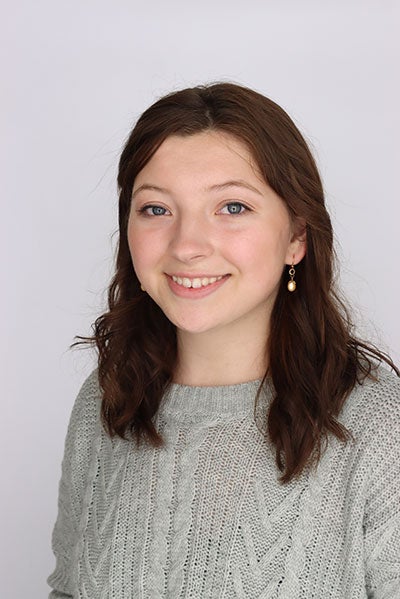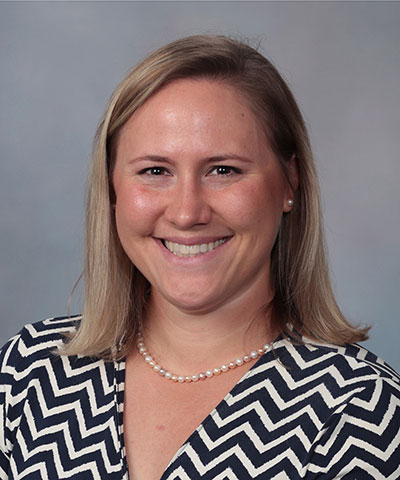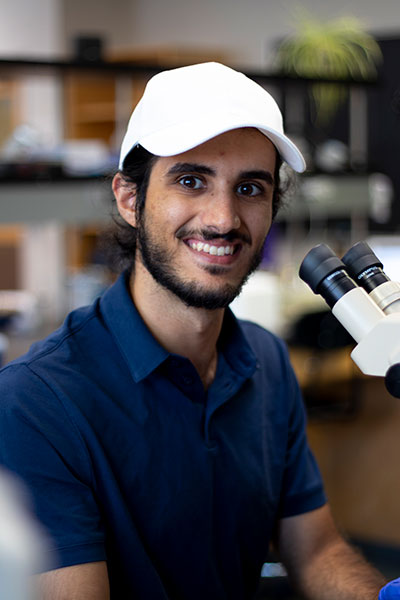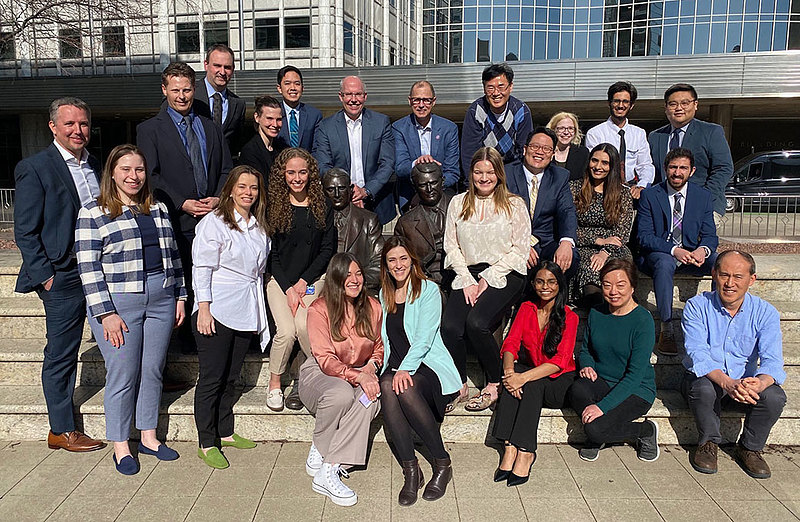A network of opportunity at Mayo
by Ellen Modersohn
Luther’s Rochester Semester is entering its third year, innovating as it goes. Despite beginning just as Covid-19 was striking, this program that connects students with career-related internships has surpassed expectations. That’s in large part because of the robust network of Luther alumni who have opened avenues of diverse opportunities for students, including direct mentoring of students in high-impact workplaces.
Of course, when Luther students intern for Luther alumni, both partners gain from the experience. Katelyn Leiran ’22 and Hamid Ahmed Abdrabu ’22, who interned last spring, provide two examples of this mutual benefit.

Katelyn Leiran ’22 is now a research intern at the Welsh Laboratory in the Pappajohn Biomedical Institute of the Carver College of Medicine at the University of Iowa.
A biology major planning to become a physician, Leiran interned in Mayo Clinic’s Laboratory of Genetics and Genomics, meeting weekly with genetic counselor Anna Essendrup ’11. During an alumni reunion, Madeline Jungbauer ’11, a career coach and internship coordinator at Luther, had asked Essendrup if she would be interested in hosting an internship. It took time for Essendrup to work it out through Mayo, but the answer was yes.
Leiran says that “for a while, I wasn’t sure whether I wanted to stay pre-med or explore a different avenue in healthcare. The internship was a great way to prototype a career to find out what I really wanted to do.”
She spent much of her time observing genetic counselors, those who see patients and those who do research. She and Essendrup met weekly to talk about what Essendrup was working on “as well as doing some broad education on genetics concepts that Katelyn would need foundationally to get the most out of what she was observing,” Essendrup says.

Anna Essendrup ’11 is a genetic counselor for the Mayo Clinic Laboratory of Genetics and Genomics in Rochester, Minn., but works from her home near Denver.
Because the lab had not hosted this type of internship before, Leiran kept a journal about her experience. “We asked her to document and give feedback regularly on what she was seeing,” Essendrup says. “It gave us a chance to explore a new area that we haven’t had a chance to provide education in before.”
As a result, Essendrup thinks the lab will offer more internships. For her part, Leiran says, “I’ve decided to continue on and apply to medical school,” ultimately seeing patients rather than doing research but perhaps keeping a focus on genetics. “I really loved the field of genetics and how that’s working into personalized medicine, so I would consider specializing in that or keeping up the protocols to know how to work in a care team that helps people explore the options of genetic testing and counseling.”
Abdrabu discovered during his internship that he enjoyed research. “It was almost career-changing,” he says. “I’m still interested in becoming a physician, but now I would also like to stay an active scientist.”
Abdrabu interned with Michael Ackerman ’88, a physician in the Department of Cardiovascular Medicine and Pediatric Cardiology at Mayo Clinic who sees patients and leads his own lab.
“I read about his lab and the things they were doing, and it was just fascinating. I am very interested in cardiology. For me, the heart is more than just a blood pump. I think the heart is a living organ that reacts to whatever is going on in your life,” Abdrabu says.

Hamid Ahmed Abdrabu ’22 is now an assistant clinical research coordinator in the Department of Radiation Oncology, Division of Medical Physics at Stanford University.
He observed the research part of the lab, where scientists were growing heart tissue from patients’ blood cells. “You can do experiments on that without ever harming the patient. I thought that was mind-blowing,” Abdrabu says.
His main project was on the clinical side, however, analyzing data of patients who had undergone a particular surgery to relieve heart palpitations and arrhythmia. “I was looking at how they were doing before and after surgery, how they compared in terms of cardiac output, how is their health, how are they doing in terms of life quality, and so on. I was able to shadow Dr. Ackerman so I could see the way he works with these patients. I was reading his notes and the results of tests done on these patients, working very closely with him in that sense,” Abdrabu says.

Abdrabu (back row, second from the right) poses with students and workers from the Windland Smith Rice Sudden Death Genomics Lab at Mayo Clinic in spring 2022. They gathered around statues of the Mayo brothers. Dr. Michael Ackerman ’88 is behind the statue on the left.
Ultimately, the student’s work confirmed what the doctor’s work had already suggested, Abdrabu says, “which is that the surgery works amazingly. I found consistency with my study.”
Abdrabu sees his fellow alumnus as a role model in combining clinical and research work. Doing both, he says, will allow him to help not only people he’s with but “people you might never meet who can benefit from your research.”